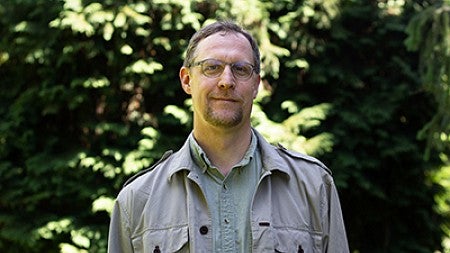
Earth Sciences
edavis@uoregon.edu | 541-346-3461
Courses: Earth Sci 418/518 Environmental Data Analysis, Earth Sci 103 Evolving Earth
In my classes you will:
- Make connections to lived experiences and real-world challenges.
- Interact during exciting, participatory class meetings.
I was invited into the Teaching Academy because:
- I participated in a Summer Institute on Scientific Teaching.
In what ways are you working to make your teaching inclusive?
I have been working to make all of my course materials more accessible with transparent design principles. I am highlighting which learning objectives are addressed by each activity, in class, lab, or problem sets.
What do you do in terms of professional engagement with the teaching and learning culture on campus or nationally?
I have participated in the Summer Institutes on Scientific Teaching for several years. I am a consistent participant in the Science Literacy Program Journal Club, so I stay up-to-date on best practices in evidence-based teaching.
In what ways was your teaching in this course research-led—informed by research on how students learn and inflected by UO's research mission?
I initially worked to produce the flipped class structure after reading the research showing that this approach consistently improves student outcomes in comparison to traditional lecturing. I have subsequently modified my class structure in response to additional research. For example, I originally had students in randomly assigned groups to encourage networking among the diverse groups represented in the student body; however, subsequent research showed that such arbitrary groups negatively impacted the learning of women and members of underserved minorities, so I now allow students to pick their own groups for half of the class meetings.
Who or what made you choose this discipline?
I was led to the discipline of paleontology by the movie Jurassic Park, back in 1993. It seems a bit silly, maybe, but I was inspired by the depictions of the dinosaurs in the movie to drive my high school and college career towards getting into a graduate program in paleontology. I joined the local museum in Memphis, the Pink Palace, as a volunteer in high school. I worked in that paleontology lab until college in 1995, where I started as a Geology major at the University of Tennessee in Knoxville. I worked on invertebrate paleonotology research as an undergraduate because that was the discipline to which I had access. Once I earned entry to the graduate program at Berkeley, I discovered the wonderful world of fossil mammal research, and that is the topic I have stuck with ever since. So a dinosaur movie inspired me to eventually become a world expert on fossil antelope.
